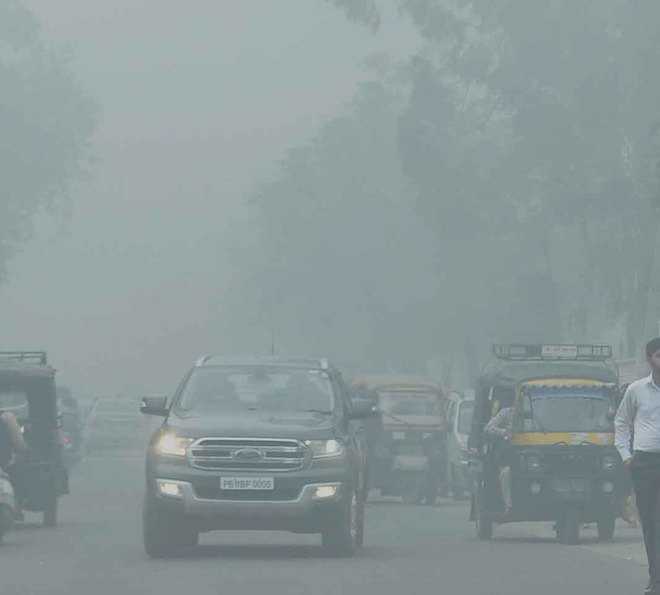New Delhi, November 17
The Supreme Court on Wednesday refrained from passing any harsh directives on worsening air pollution in Delhi-NCR for now and adjourned hearing on the issue to November 24 after the Centre said the condition would improve after Sunday.
A three-judge Bench led by Chief Justice NV Ramana, however, asked the authorities not to lower the guard.
The top court asked the Centre and states to implement in letter and spirit the decisions taken in the emergency meeting held by the Commission for Air Quality Management in the National Capital Region and Adjoining Areas that was attended by senior officials from the Centre and NCR states.
The Commission had on Tuesday directed closing down of all educational institutes till further notice, stopping all construction activities till November 21 and work from home for 50 per cent staff in government offices. Trucks, other than those carrying essential supplies, will not be allowed to enter Delhi till Sunday. It said these restrictions might be extended depending on the air pollution condition.
The Bench – which also included Justice DY Chandrachud and Justice Surya Kant – decided to defer the hearing to next Wednesday after Solicitor General Tushar Mehta urged the court to postpone harsher steps as the Met Department had said that the situation would be better after November 21.
“I have a suggestion, meteorological scientists were also there in the emergency meeting and as per them the wind flow will be there after November 21. Would this court not consider waiting till November 21, before implementing harsher measures?” Mehta submitted.
‘Basically by November 21 nature will come to your rescue,” responded Justice Chandrachud.
Senior advocate Vikas Singh, representing petitioner Aditya Dubey, said if there were no directions, “let them (states) ensure there is no stubble burning”.
During the hearing that went on for almost two hours, the top court pulled up the bureaucracy for its “don’t take any step” attitude in dealing with any situation, including air pollution.
“They do not want to take any decision. They want courts to pass orders and they are happy to implement it,” it said, adding, “It is unfortunate that bureaucracy has come to this pass.”
“What I am observing as a judge and before it as an AG, I have observed that bureaucracy has gone into inertia and they don’t want to do anything, like using sprinklers or water buckets, we have to say. This is the attitude of the executive,” the CJI said. “It is apathy and just apathy,” added Justice Chandrachud.
“There has to be some responsibility…not everything can be done through judicial order,” the Bench noted.
“What we’re seeing is the plight of farmers. People sitting in Delhi in five-, seven-star hotels criticise how they (farmers) contribute 30 or 40 per cent to pollution. Have you seen their (farmers’) earning per landholding? But we ignore the fact that firecrackers are burning even after Diwali…” it said.
The Bench said debates on TV channels were creating more pollution than anything else. “They don’t understand the issue and they say anything they like…They have their own agenda…We are here for a specific purpose. We want to bring down pollution from (AQI) 500 to a lower level,” it said.
In an affidavit filed in the top court, the Centre said instead of asking its employees in Delhi to work from home, the DoPT has advised them to go for carpooling to curb air pollution by reducing the number of vehicles used by them for commuting.
This has been done in view of the fact that things were getting back to normal after a long time due to Covid pandemic during which most of its employees worked from home, it said.
“Can the minimum impact it has on pollution outweigh the impact it will have on pan India functioning? That’s why we have suggested pooling of vehicles,” the Solicitor General said.
The advocates representing Punjab, Haryana and Delhi informed the court about the steps being taken to tackle the problem.
At the outset, the Solicitor General said his submissions on Monday regarding the contribution to stubble burning to air pollution were misconstrued in the media, and “irresponsible and nasty utterances” were made against him. It was projected as if due to elections in Punjab, the Centre said only four per cent was the contribution of stubble burning to air pollution, he said.
However, Justice Chandrachud said the Bench wasn’t misled at all. “I have repeatedly told you that you get this type of criticism when you hold a public office,” the CJI told Mehta.
Discussions
Discussions
